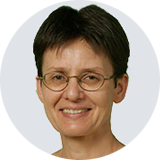Semi-plenary session- Spaces of permanent crisis or the lands of opportunities? The changing geographies of rural spaces in the eastern periphery of Europe

Erika Nagy is senior research fellow at the Centre for Economic and Regional Studies, Hungarian Academy of Sciences. She was trained as a geographer and an urban historian; holds PhD in social geography. Her research covers economic and political geography with a spatial focus on CEE (urban restructuring; rural marginalities; state restructuring), Europe (peripheralization; border studies) and global flows (retail; food GPNs). She is a lecturer at the University of Debrecen and tutors PhD students at the University of Szeged. She is an editor of Spaces and Society/’Tér és Társadalom’. Her current projects are focused on housing inequalities and food sovereignty – its agents and structural limits in rural spaces. Her connection to rural studies is rooted in being raised in one of the poorest rural regions in Hungary, and working in/writing from a rural-peripheral context for more than two decades.
Abstract
Rural spaces have been considered as a source of labour, land, and other disposable assets fuelling post-financial crisis recovery, as a refuge in the time of pandemics, as a resort to manage persisting food crisis, yet also as scenes of multiple social crisis and political subjection in the past decade. This keynote talk contributes to the core topic of the conference call by giving an insight in the power relations driving the transition of rural societies in times of crises and recovery, and also in the emergence of counter-movements (in Polanyian sense) in the eastern periphery of Europe. The keynote has 2 aims:
- In a broader sense, it is intended to de-centre knowledge production by highlighting how peripheralisation as a multiscalar and multidimensional process permeates all aspects of social relations, everyday practices and political discourses shaping rural spaces beyond the European core. Digging deeply in CEE rural peripheries reveals multiple dependencies entailing poverty, unequal access to welfare services, and political clientism undermining communities in times of crisis and beyond that, as part of the actual spatial-institutional fix; nevertheless, it is also a source of understanding how (by whom) such processes are counteracted and performed in the eastern periphery. This calls for scrutinizing the term ‘crisis’ in (from) this very context and researching rural spaces as part of a broader power geometry of capital flows, EU and national and policies and spatial hierarchies moreover, for being concerned with the many forms of agency across Europe.
- Focusing on the diversity and the drivers of change in rural areas also entails placing the dynamics of rural-urban relations in the focus to grasp the ‘rural’ as a space where complex, multiple social relations are intersecting. Contributing to this rapidly growing stream of rural studies, the keynote draws the lessons of 2 research projects.
(i) Anchoring the analysis in critical political economy, I highlight, how post-financial crisis wave of state-sponsored peripheral industrialisation in CEE is fuelling new, complex, exploitative urban-rural relations, entailing the loss of control of communities over local assets (land, environmental processes) and marginalising many rural spaces and their residents in the new spatial fix. The case studies picked from Hungary also reveal, how the changing spatial division of labour and rural poverty is underpinning the current authoritarian regime.
(ii) Furthermore, relying the results of an interdisciplinary research community (herstory) through the lens of Polanyi’s concept of Double Movement, alternative paths to the dominant forms of peripheral-capitalist production in rural spaces shall be discussed. The stories of emerging communities relying on self-supply and mutual help in rural spaces reveal, how urban residents moving to small villages struggle with structural constraints (e.g. the deficits of public services and infrastructure), how they build new social relations locally and how such processes entail mutual acceptance and change in rural spaces. The project results point to the powerful state agency, its contested relations to social actors challenging actual institutional-narrative fixes in CEE, and also to the blurred yet still-existing boundaries of the rural and the urban.
Keywords: peripheralization, urban-rural relations, critical political economy, double movement, Central and Eastern Europe/CEE
